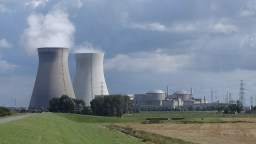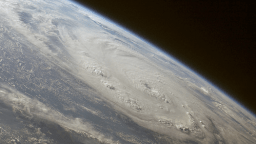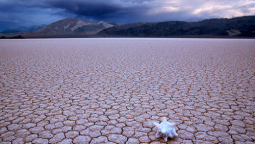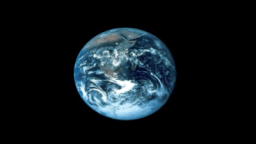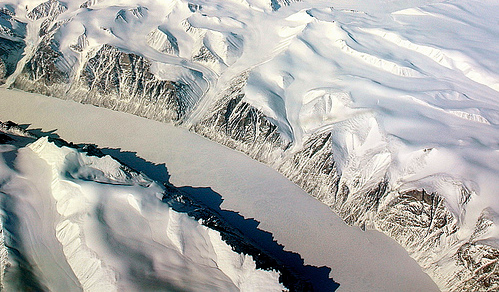To commemorate the anniversary of the Apollo 11 moonwalk NASA has released partially restored video of a series of 15 memorable moments from the expedition.
Search Results
You searched for: nasa
NASA’s new planet-hunting telescope has found two mystery objects that are “too hot to be plants and too small to be stars” – neither of which fit any definition of known astro objects.
NASA’s Martian rover Spirit will officially rove no more. After being stuck in a sand pit on Mars for the last 10 months, it has been announced that the aging shuttle will not be moved.
Lasers are vaporizing materials including rocks and steel in order to allow scientists to analyze their chemical composition in transference of such techniques from Mars probes to forensics.
Not long ago, a report quoting NASA scientists was issued by the National Academy of Science, the highest scientific advisory body to the United States Congress. The report said something that used […]
The US goes by the motto In God We Trust (but only since 1956, when it replaced the ‘unofficial’ motto, E pluribus unum). A motto (from the Italian word for […]
The Hubble Telescope has taken the earliest snapshots of galaxies in the universe’s infancy, about 600 million years after the Big Bang.
A satellite has captured images of “night-shining clouds”, which form at high altitudes and glow after night falls, and NASA has used them to create a new map of the formations.
Aurora borealis, or the Northern Lights, can sometimes collide producing spectacular displays of light according to NASA which deployed cameras around the Arctic to catch the phenomenon.
Since the collapse of the Soviet Union, the Russian space program has been working closely with NASA. But current Sino-American relations in space are basically non-existent.
▸
12 min
—
with
As a genre, science fiction could potentially wield more influence over its followers than any other cultural force. Through film, television, and comics, it has inspired countless socially-awkward young people […]
The Hubble Space Telescope has taken the deepest near-infrared image of the universe in history, featuring galaxies that formed 600m years after the Big Bang, according to NASA.
A discussion with the NASA and Columbia University climatologist.
▸
24 min
—
with
During his sitdown with Big Think, Astronaut Leroy Chiao explained the challenges of lengthy trips to space, including bone and muscle loss, as well as the dangers of fatigue. But […]
While the NASA space shuttle program ages, Richard Branson’s Virgin group may be set to offer public space flights by 2011.
Analysis of images of “ancient lakes” on Mars’ equator suggests similarities to lakes found in Alaska and Siberia, adding to the likelihood that there was once life on the Red Planet.
Planetary scientist Francis Nimmo says evidence from recent NASA expeditions suggests that conditions necessary for life may exist on the icy satellites of Saturn and Jupiter.
The head of NASA’s Goddard Institute explains fourth generation nuclear power, and harnessing this technology will be pivotal for America’s future.
▸
4 min
—
with
The NASA climatologist outlines how and when the accumulation of greenhouse gases will make Earth uninhabitable for our species—and why human life cannot be transferred to a different planet.
▸
5 min
—
with
Solar physicists investigating the mysteries of the solar corona have unearthed further clues by observing the sun’s outer atmosphere during eclipses over the last five years.
The NASA climatologist argues that a steadily increasing carbon tax will help businesses in the long-term and explains why Exxon Mobile’s CEO has been among the first to realize this.
▸
3 min
—
with
The NASA climatologist outlines the only carbon tax that can effectively curb greenhouse gas emissions—one that is being done in Vancouver, BC, and gives all the tax money back to […]
▸
3 min
—
with
Keep doing exactly what the U.S. Government is doing and you’re off to a perfect start. The NASA climatologist explains why the cap-and-trade proposal only represents the interests of the […]
▸
4 min
—
with
How the “whole earth photo” Stewart Brand successfully lobbied NASA to release in 1966 kicked off the modern environmental movement.
▸
2 min
—
with
A group of NASA engineers have perfected a replicating machine that resembles something out of Star Trek.
The second part of Eruptions readers’ recollections of the historic May 18, 1980 eruption of Mount St. Helens.
New evidence suggests that remnants of Martian microbes were transported to Earth in a meteorite that crashed into Antarctica 13,000 years ago.
The soot emitted when fossil fuels are burned, known as “black carbon”, could have a bigger impact on climate in some parts of the world than greenhouse gases, new research reveals.
When James Hansen created one of the world’s first climate modelers—then termed “Model Zero”—thirty years ago, he sounded a novel and somewhat abrupt alarm. The world, he predicted, is getting […]
This morning astronaut Leroy Chiao spent some time with us at Big Think to chat about his four tours in outer space and his role as director at Excalibur Almaz, […]





